One of the really fascinating aspects about our Shetland Oo project has been finding out more about what motivates Shetlanders who work with wool, and what really makes them tick, both personally and politically (because yes, in so many ways wool is political). Ronnie Eunson and Sue White of Uradale farm, near Scalloway, are particularly inspiring in this respect. Gradually converting their entire operation to organic, six years ago they began producing a wonderful range of yarn from their native Shetland sheep, every step of whose production is completely traceable. Whether in the wonderful natural colours grown by their sheep, or the luminous jewel-like dyed shades that Sue has developed, Aalmark yarn is really beautiful, and if you’ve seen Hazel Tindall’s Fine Art of Fair Isle Knitting, you’ll have some idea of its potential.
Here’s Ronnie to tell you a little more about what Uradale is about.
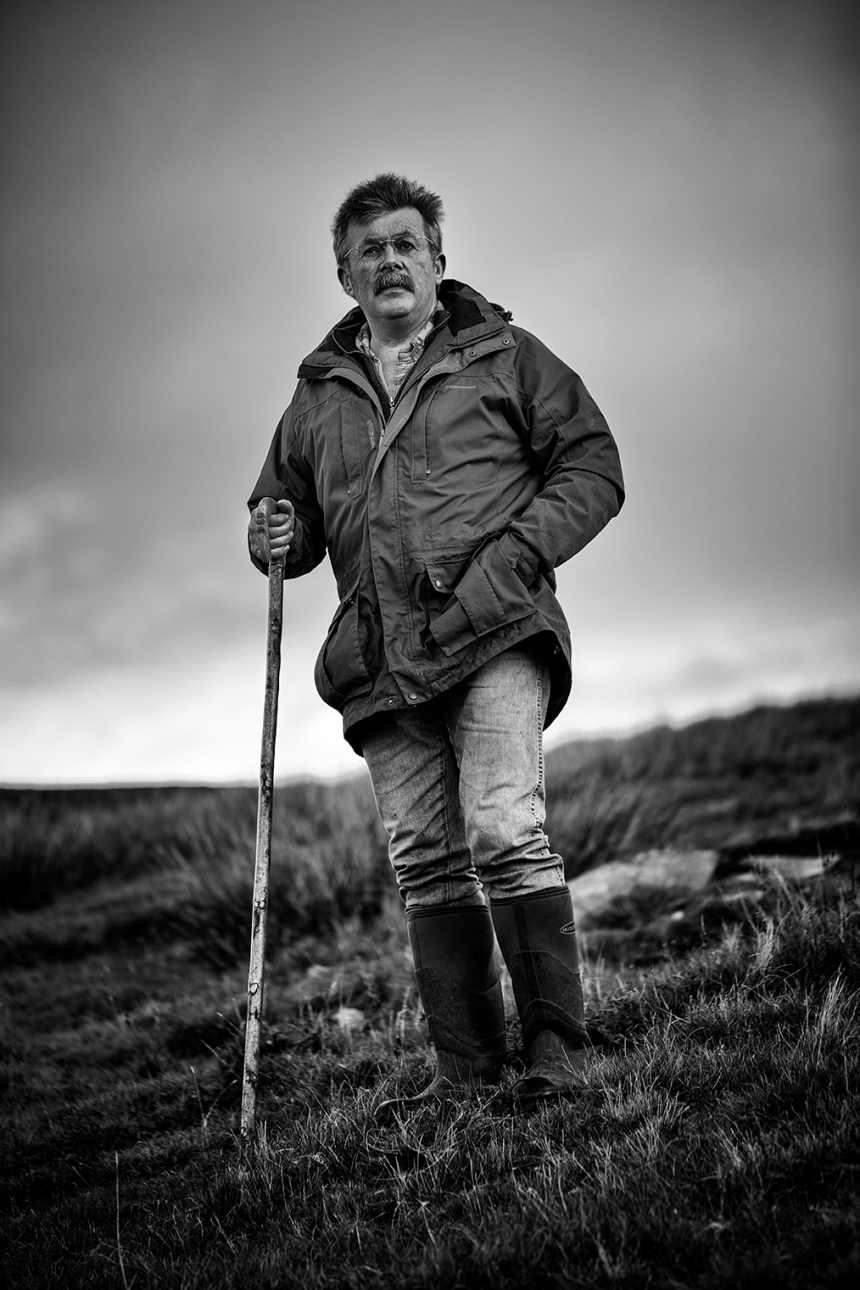
“Uradale is very much a work in progress. I used to keep double the number of sheep and these were mostly cross breeds for store lamb production. After a series of volatile markets last century, I decided to change all this, and to move to a more sustainable way of farming.”

“Since 2000 our sheep, the land, and finally the cattle have all been converted to organic. Our sheep flock was halved and from cross breeds we returned to pure Shetland sheep. This return to focus on the native breed has effectively saved the farm. Uradale rises from sea level to peat land tops and needs livestock that feel comfortable in their environment.”
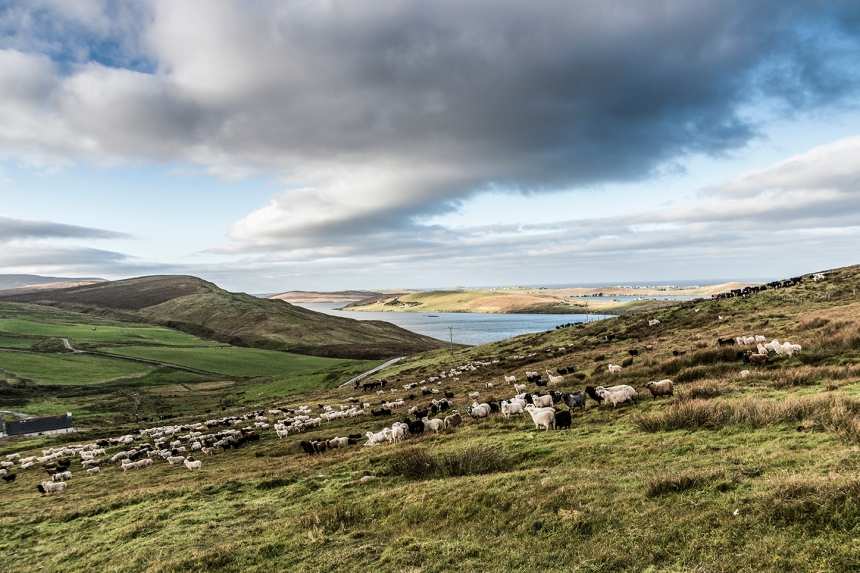
“The native Shetland sheep breed has a wide genetic base adapted to the climate, the vegetation types available and the challenges of living here, on a rock amidst an ever-heaving ocean. This adaptation has taken at least 5000 years and could never have been created by humans alone. This animal’s ability to produce healthy meat and exciting wool in such a situation makes Shetland sheep one of the world’s pre-eminent breeds of domesticated livestock. They demand our total respect.”
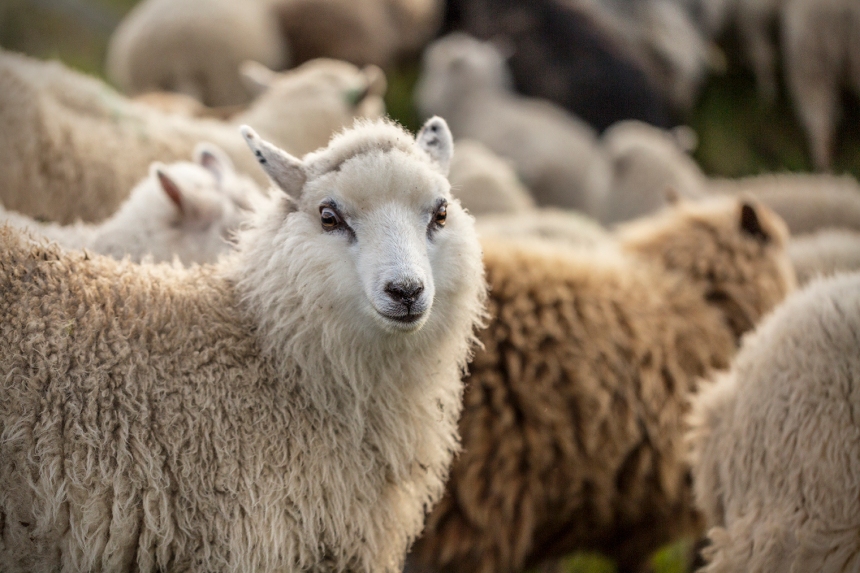
“Native Shetland produce is the backbone of the farm. I found that customers really liked the quality and flavour of the meat and appreciated the elements of provenance and sustainability brought by our simple organic system. With the organic meat a success, six years ago I decided that we must also try to do something with our now organic wool. All over the world, fibre and fabrics were being marketed as “Shetland” that had no connection to the Shetland sheep breed, and even less to sheep raised in these islands. Contemporary knitters seemed to be an increasingly well-informed bunch, and surely some were interested in the genuine article?”
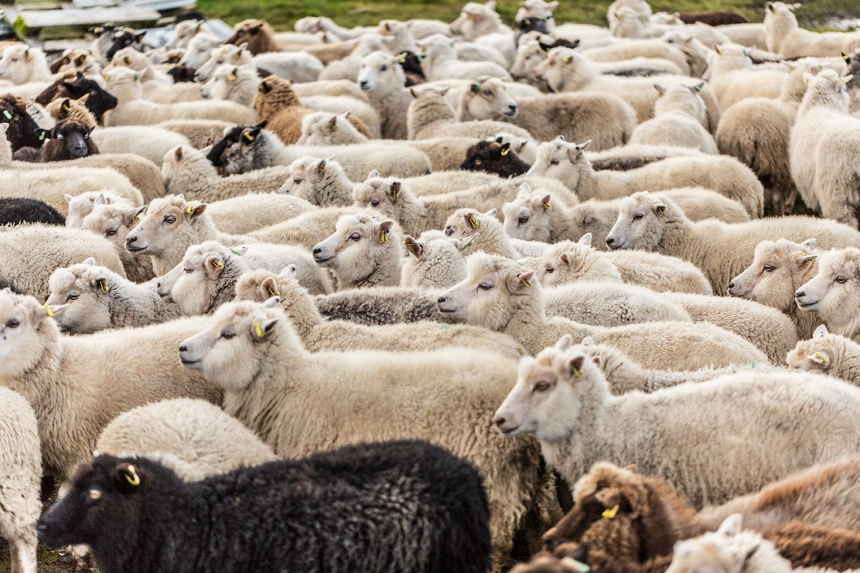
“Wool is now a global commodity, but not all kinds of wool production are equally sustainable, or equally good for the natural environment. In a world of limited resources, these issues are important to consider. Native ancient breeds like Shetland sheep thrive in the parts of the world where the more “improved” types really struggle. I think small-scale production of breeds that have adapted to the challenges of climate and natural conditions, and shaped our landscape over centuries, perhaps provide one key to keeping wool environmentally sustainable.”
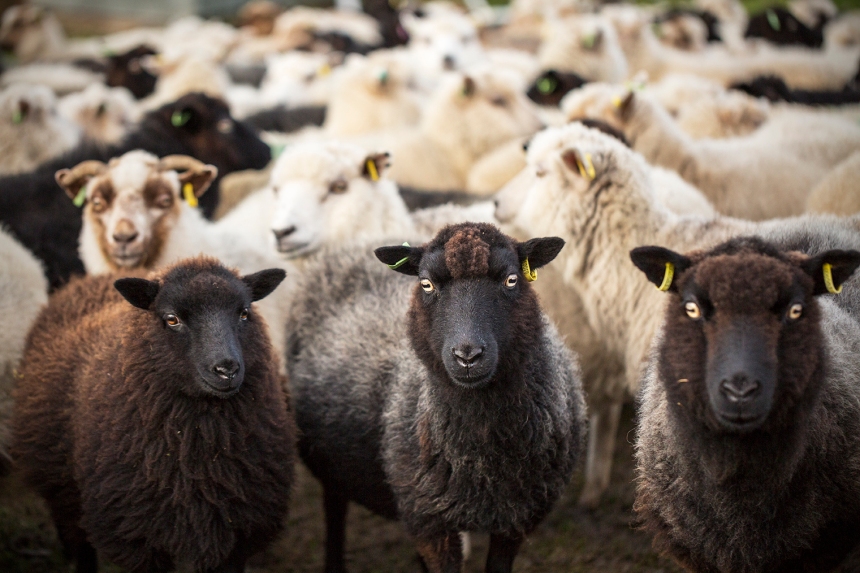
“Developing the organic yarn was a team effort with Shetland Organics. Initially, we found that few understood the term ‘organic’. It was seen as a nonsense by many folk and our first challenge was finding the markets where customers respected sustainability, and understood wool and sheep and our whole system. I grade the wool myself right here on the farm to suit the kinds of yarns we want to produce.”
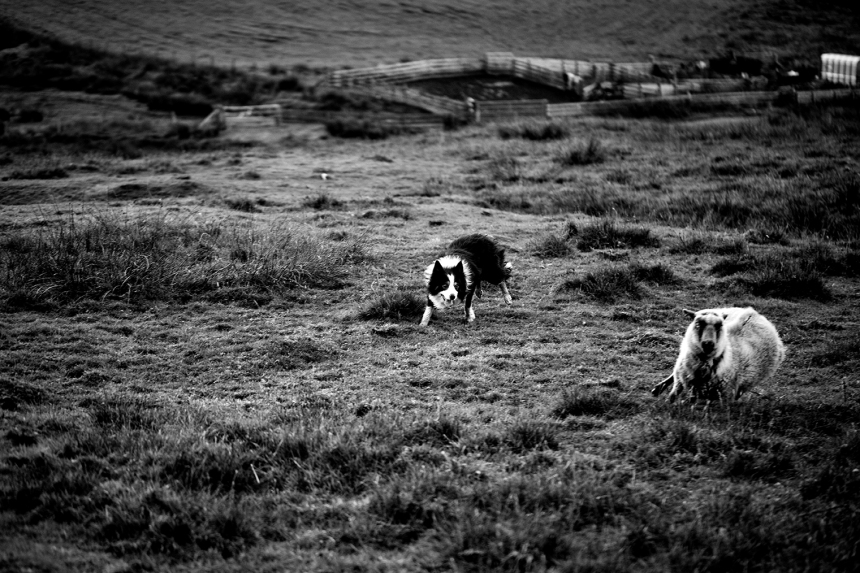
“Sue, my partner, loves colours and textiles, and as well as being a chartered environmentalist is a talented craftswoman. The shades she’s developed and selected for our yarns have been inspired by plants in the valley below us here at Uradale. The natural fleece shades are, of course unique, and vary depending on the fleeces our sheep produce, from year to year. The brand name for our yarn is Aalmerk – the old word for sheep who are owned by nobody as they carried no ‘lugmarks’ (ear cuts unique to each farm). Aalmerk sheep were the free spirits of the sheep flocks, who ranged far and wide avoiding the boundaries of compliant domestication.”
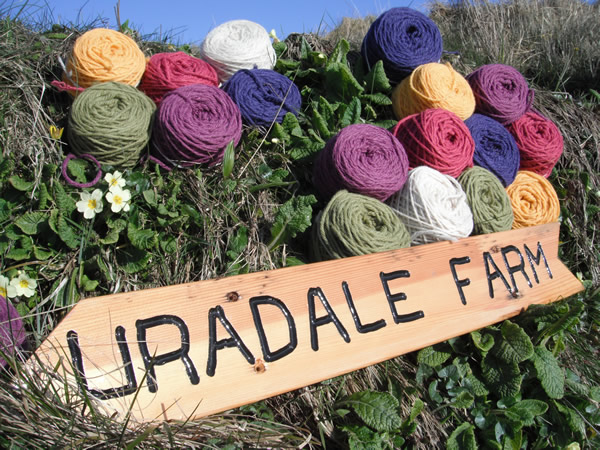
“What we have now is as near to an holistic system as is possible within Shetland. You start with sustainable flocks within sustainable environments and clearly accountable systems. Every step in the production allows traceability. Every step is organically certified- the scouring, spinning and dyeing. The world of fast fashion raises ethical questions every day. Why shouldn’t customers demand this level of assurance?”
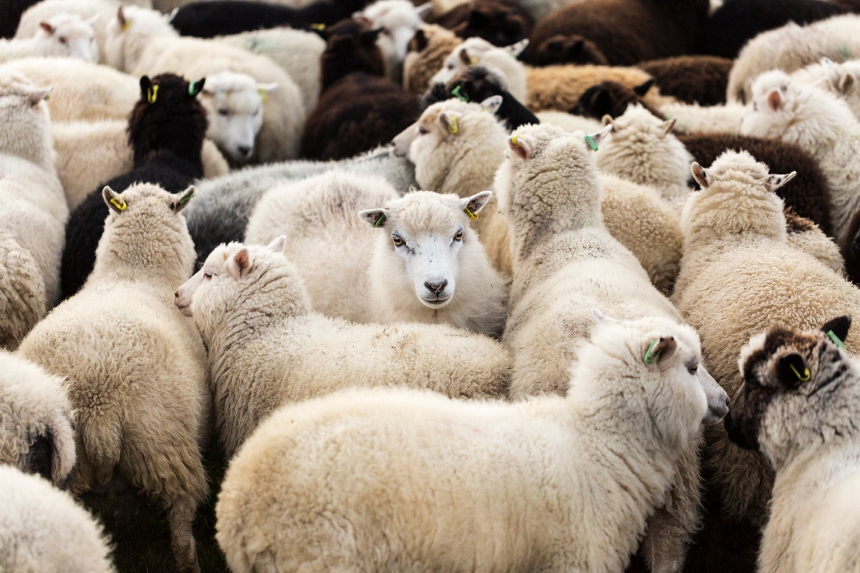
“It is sometimes tough doing what we do, but when folk from far away say complimentary things about your work then the clouds clear. I believe there’s a true merit in authenticity. Why aspire to be someone else?”
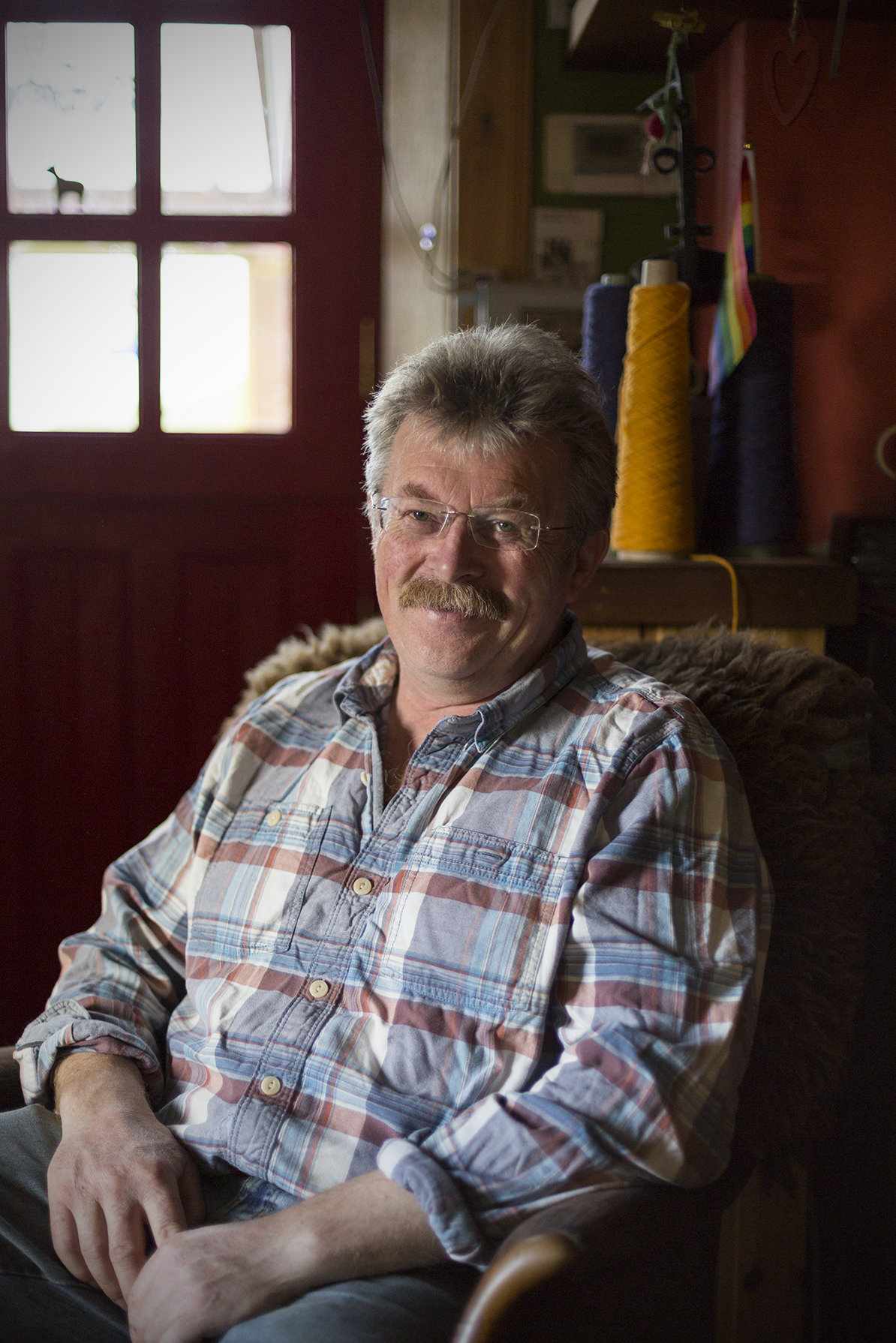
Thanks so much for the chat, Ronnie!
You’ll meet Ronnie again in the pages of our Shetland Oo book which will be published in just a few days time. You can find out more about Uradale here, and Shetland Organics here. You can follow Sue on Instagram (@uradale_yarn), or (excitingly) meet Ronnie and Sue in person next year, with their Aalmerk yarn, at Edinburgh Yarn Fest.

I followed the link to your blog in The Twisted Yarn’s blogpost from 13th November. A great discovery and I will come back. It is fantastic to read that there is organic sheep farming developing in Scotland.
LikeLike
It is going to be wonderful to have all of these posts in the book! Thanks you for these tidbits.
LikeLike
Lovely! Most importantly though, how does it knit up with Buchaille? Are they close enough weight to work together?
LikeLike
Another great article. I love these! And I couldn’t agree more about the need for sustainability and traceability. This is exactly what we need to move towards on a global scale.
LikeLike
Always interesting. I’ve been studying Scandinavian knitting so this was icing on the cake!! I just love to read about the origins of knitting. It’s good to know there are sustainable and organic sheep farming going on. Hope it catches on! Thanks for keeping us informed and looking forward to your publishing.
LikeLike
Really enjoying these stories you’re posting. Looking forward to your book’s release.
Went to Aalmark yarn’s website. It looks like they haven’t updated in quite awhile. Don’t see an email to contact them to inquire about current availability?????
LikeLike
Excellent explanation of organic sheep-raising. I had not thought about the importance of non-comestibles being organic. Thanks, Ronnie! I’ll never mock organic socks and undies again.
LikeLike
I really enjoy your blog, Kate! I live in arcata, California, USA. Great work and much appreciation for all that you do and for all the people who are making the efforts to be organic and sustainable. I truly have great respect for all the “Shetlanders”. Renee
LikeLike
What a treat to hear more about sustainable farming systems in Shetland and a new (at least new for me) yarn source. Although I have been hiking in the Highlands and the Outer Hebrides, I still have to make my first trip to the Shetland Isles. I now have another yarn source to enjoy and hopefully visit, Uradale, in addition to another of your yarn recommendations – Foula. Thanks, Kate!
LikeLike
Our group had the pleasure of having tea with Ronnie and Sue when Mary Jane and Gudrun’s Grand Shetland Adventure was in Shetland for Wool Week this year. We met the tups (rams) and bought a lot of their beautiful yarn! It just might have been my favorite day on the islands because I had the opportunity to talk sheep with Ronnie and his son. (I raise sheep in the US). They are lovely people and I so admire the work they are doing. Thanks for reminding me of my time in Shetland!
LikeLike
Thanks so much for sharing! Now off to check out the websites! =)
LikeLike
This is a wonderful success story, great organic products, great colors in the yarns, etc. Thanks for sharing.
LikeLike
Oh wow – this is amazing. I wish there were more farmers like him out there.
LikeLike
Oooh! These posts are so beautifully thought up and written and the people interviewed and subjects are so interesting and the photos are so absolutely stunning!! It’ smashing! Thank you!
LikeLike
I learn so much daily from your blog posts Kate, the object of the exercise of course… so much so that I actually look at the weather in Scotland and the Islands on the weather map before looking at the West Country, so involved do I feel!
LikeLike